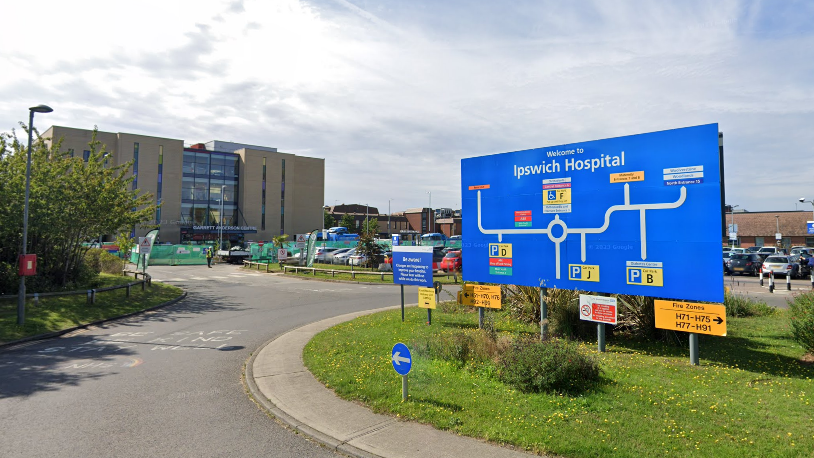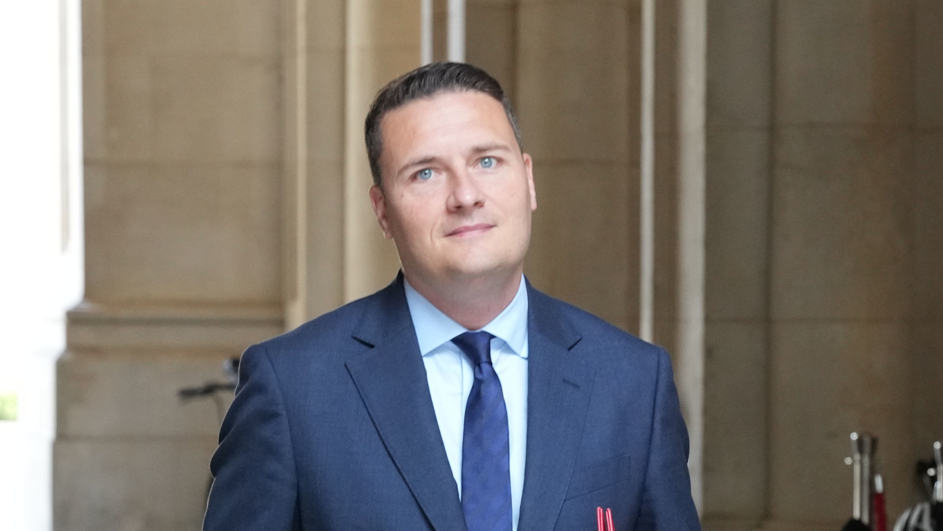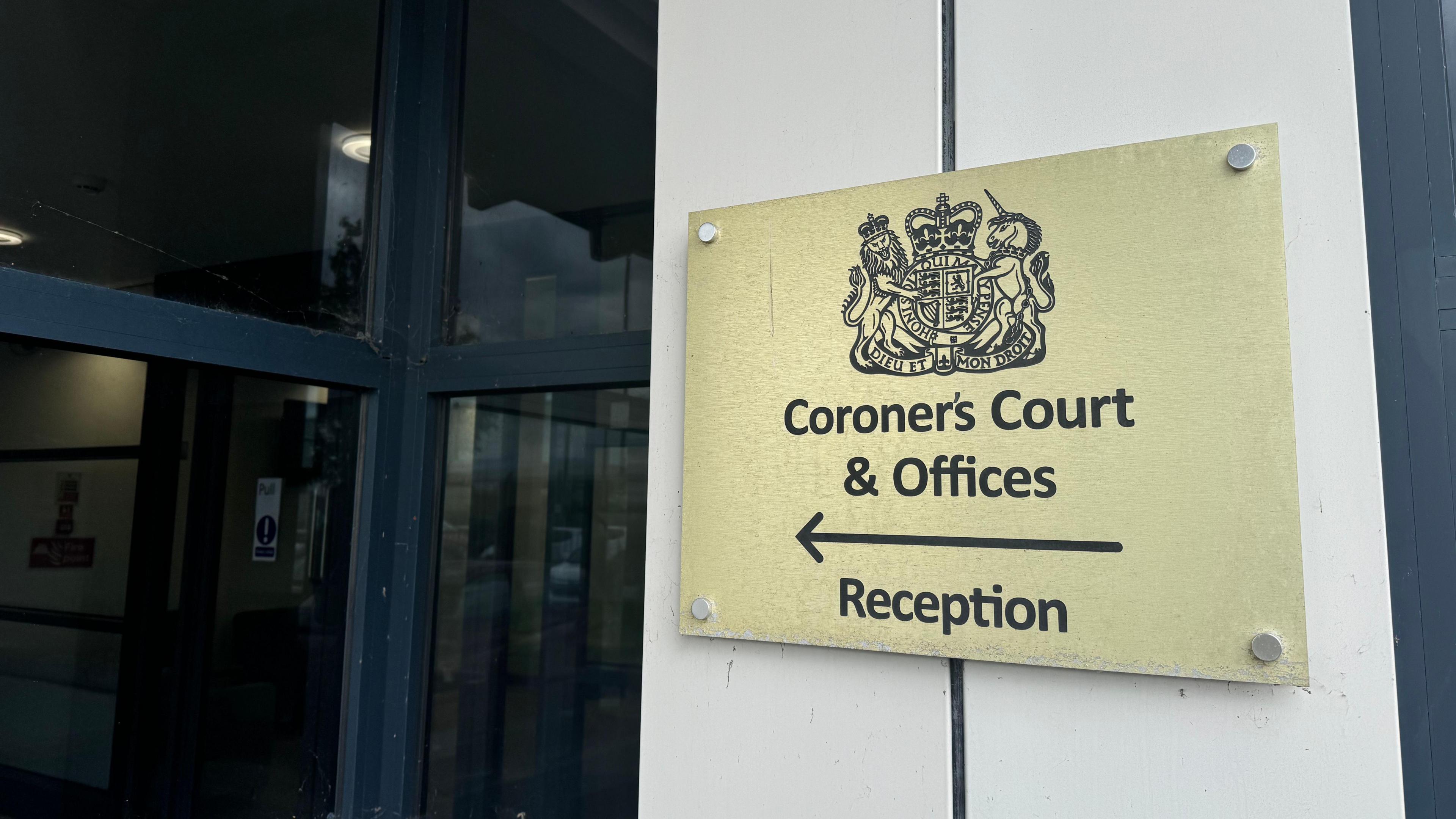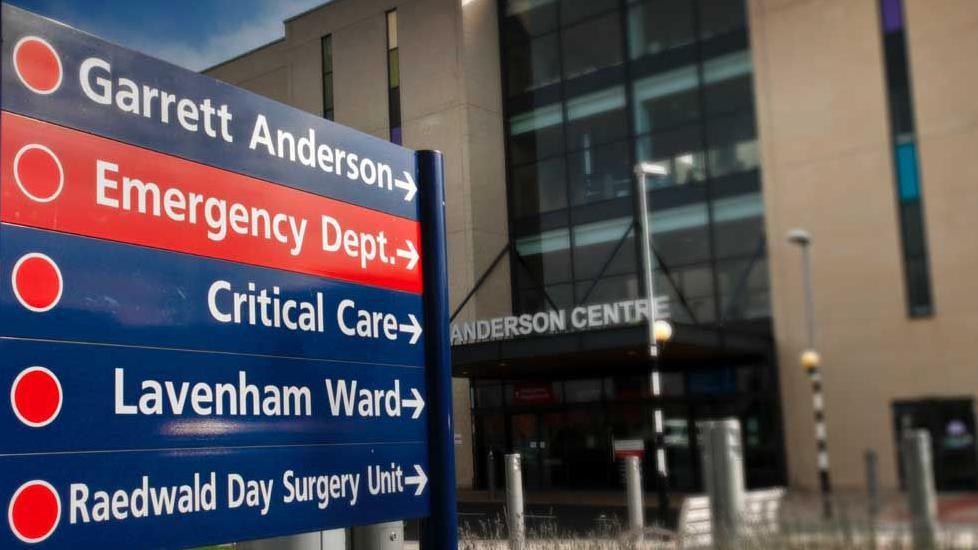Calls for action after 'missed' chance to save boy

The A&E department was "exceptionally busy" at the time of Regan's admission
- Published
A coroner has called for action "to prevent future deaths" after ruling a boy could have been saved if not for a "missed opportunity" to provide him with vital medication.
Regan Smith, 11, died of multiple organ failure on 31 January 2023 after he developed diabetic ketoacidosis, external (DKA) and then acute liver failure, external.
The Felixstowe schoolboy’s DKA initially went undiagnosed after his "abnormal" blood glucose level was not disclosed by paramedics upon arrival at Ipswich Hospital, external, in Suffolk.
Coroner Nigel Parsley has now urged the Secretary of State for Health and Social Care, Wes Streeting, to implement a national protocol for patient handovers at A&E units.

Suffolk coroner Nigel Parsley has urged Wes Streeting, to introduce a national protocol for patient handovers at A&E units
Regan’s inquest revealed there was a "muddled, confusing and jumbled" handover between paramedics and A&E clinicians which contributed to his death.
In addition to his blood glucose level not being communicated to A&E staff, it was also recorded as "normal" in Regan's electronic patient care record (EPCR).
In a Prevention of Future Deaths, external report, Mr Parsley highlighted that clinical information was not immediately available to hospital personnel in every case.
He has also said IT systems used by the ambulance and hospital workers are not directly compatible and so there was a reliance on them exchanging information verbally.
In Regan’s case, his verbal handover occurred when the unit was “exceptionally busy” and staff had not been able to take any of their scheduled breaks.
Mr Parsley said: “The information to save Regan’s life was in the possession of the NHS at a time when lifesaving treatment could have been given to him.
“It was heard in evidence there was no national protocol and no national standard operating procedures.
“[There is] no National Institute for Health and Care Excellence guidance, in relation to the conduct of patient handovers at Accident and Emergency units.
“In my opinion action should be taken to prevent future deaths and I believe the [Department for Health and Social Care, external] has the power to take such action.”
The department now has until 18 September to issue a response containing details of action taken or proposed to be taken. If not, it “must explain why no action is proposed”.
'Difficult handover'
Regan had first started showing signs of illness on 23 January when his parents noticed his strange and laboured breathing.
His dad Gavin took him to A&E and he was then diagnosed with viral laryngitis by a nurse practitioner the next day.
Then, on 25 January, paramedics took Regan back to hospital after his blood glucose level, was found to be "higher than it should have been".
During what was described as a "difficult" handover process, the hospital told the inquest that ambulance personnel did not tell them about Regan’s high blood glucose levels.
After assessing Regan, nurses and doctors considered his laboured breathing to be a result of anxiety and he was discharged, but collapsed at home the next day.
He was again taken to Ipswich Hospital where this time it was established he had undiagnosed diabetes and was now suffering from DKA, which then led to liver failure.
After being transported to Addenbrooke’s Hospital in Cambridge, Regan was moved to King’s College Hospital in London before his death there on 31 January.”

Regan Smith's inquest heard his death could have been prevented if he had been given vital medication in time
'Sincerest sympathies'
The East of England Ambulance Service, external previously paid "condolences" to the family.
A spokesperson said: "Our review found Regan’s blood sugar was reported as normal in the EPCR in error, however the EPCR also noted the correct levels, which were abnormal.
"These notes were signed for by a nurse."
Nick Hulme, chief executive of East Suffolk and North Essex NHS Foundation Trust, external, which runs Ipswich Hospital, also sent "deepest and sincerest sympathies".
"We have taken steps to change the handover process for patients who arrive by ambulance," he added.
"Staff have also undertaken further training detailing the signs and symptoms of previously undiagnosed diabetes.
"We understand this does not change what has happened, but we are committed to learning from this very sad incident in any way we can."
The Department for Health and Social Care was contacted for comment.
Get in touch
Do you have a story suggestion for Suffolk?
Follow Suffolk news on BBC Sounds, Facebook, external, Instagram, external and X, external.
- Published24 July 2024
